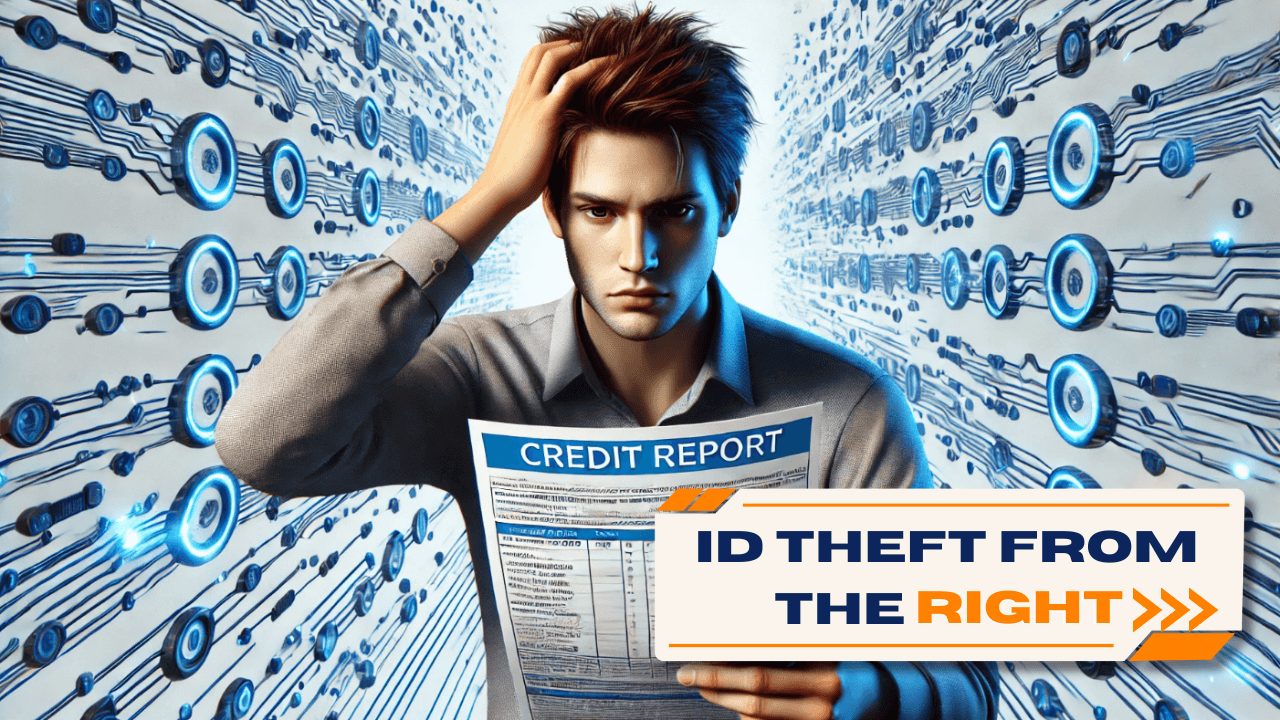Identity Theft Prevention From The Right

National Public Data, a company that collects and markets personal data, confirmed it suffered a data breach and lost control of the information it housed on millions of Americans. The company acknowledged the information contained names, dates of birth, and social security numbers. Analysts monitoring the situation believe the incident is the most significant loss of personal information to date and will affect “nearly all” Americans.
“Left-of-boom” is a term used primarily in cybersecurity and military contexts to describe activities or actions that occur before a critical or catastrophic event (“the boom”) happens. The “boom” represents the point of impact, such as a cyber attack, explosion, or another significant disruptive event. The goal is to stay Left-of-boom, where you are in a proactive controlling state, as opposed to right-of-boom, which transitions you to an uncontrolled situation and entirely reactive mode.
The NPD data breach has placed nearly everyone in a post-incident state. The question is not IF identity thieves will target us, but WHEN they will. You must accept that these criminals have our information and will eventually use it. We are now living right-of-boom.
 You should aggressively monitor your credit reports and financial accounts for any unusual activity.
You should aggressively monitor your credit reports and financial accounts for any unusual activity.
Contact the major credit bureaus (Equifax, Experian, or TransUnion) to place a fraud alert on your credit report. This alert notifies potential creditors to verify your identity before granting credit in your name.
Consider a credit freeze to restrict access to your credit report, making it harder for identity thieves to open new accounts in your name.
Contact your financial institutions to discuss protections against identity theft and account takeovers.
Additional security practices include:
- Proactive Protection of Personal Identifying Information (PII)
- Data Minimization: Only share essential PII when necessary. Avoid oversharing information online or in public forums.
- Encryption: Use encryption tools to protect sensitive data, both at rest and in transit.
- Secure Storage: Store physical documents like Social Security cards, passports, and financial statements in a secure location, such as a safe.
- Protect your accounts with strong authentication practices:
- Two-Factor Authentication (2FA): Enable 2FA on all accounts that support it to add an additional layer of security.
- Password Management: Use strong, unique passwords for each account, and consider using a password manager to keep track of them securely.
- Education and Awareness:
- Phishing Awareness: Be vigilant about phishing attempts, a common method identity thieves use to obtain PII. Always verify the authenticity of requests for personal information.
- Regular Training: Stay informed about the latest identity theft tactics and educate others about how to protect their information.
- Regularly update and patch your devices and software
- Software Updates: Keep all devices and software up-to-date to protect against vulnerabilities that could be exploited.
- Consider Purchasing Cyber Insurance
- Visit this recent post or contact our team at MPB Insurance & Risk Management today for more information on how we can protect your data.
The complete impact of the National Public Data incident will become clear in the following weeks and months. However, assume your personal information is affected and start taking steps to mitigate the damage.
Share:
Disclosures
The material on this site was created for educational purposes. It is not intended to be and should not be treated as legal, tax, investment, accounting, or other professional advice.
Securities and Insurance Products:
NOT A DEPOSIT | NOT FDIC INSURED | NOT BANK GUARANTEED | NOT INSURED BY ANY FEDERAL GOVERNMENT AGENCY | MAY LOSE VALUE
